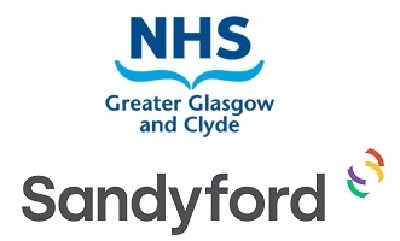A practical resource to help staff and carers to support children and young people in relation to their sexual health and wellbeing.
About

All children and young people have a right to good health and wellbeing and corporate parents have a duty to ensure that this right is upheld for care experienced children and young people. Sexual health and wellbeing is a core component of overall health and wellbeing, whether or not a person is ever sexually active. The World Health Organisation defines sexual health as:
“A state of physical, emotional, mental and social well-being in relation to sexuality; it is not merely the absence of disease, dysfunction or infirmity. Sexual health requires a positive and respectful approach to sexuality and sexual relationships, as well as the possibility of having pleasurable and safe sexual experiences, free of coercion, discrimination and violence. For sexual health to be attained and maintained, the sexual rights of all persons must be respected, protected and fulfilled.” (5)
Sexual health outcomes for young people who are care experienced are markedly poorer than for the children and young people in the general population across a broad range of indicators from early experience of pregnancy, abortion care, early parenthood and sexually transmitted infection acquisition. There are also differences in resilience and the ability to identify and avoid unhealthy relationships and sexual exploitation. This has its roots in experiences of childhood, with insufficient communication or inappropriate guidance from adults regarding healthy relationships compounding existing adverse childhood experiences and trauma.(6)
The toolkit has been developed to help address this inequality by providing practical support to enable staff and carers to weave this into their day to day care. Training for carers and the workforce will be offered by NHS GG&C to build skills and confidence, where needed.
This toolkit will be updated every 6 months. The Health Improvement Team for Sexual Health, NHS GG&C will be responsible for this.
Next update due June 2025.
The editorial group consists of clinical staff and Knowledge Services staff:
Clinical Lead/Responsible officer – Jill Wilson jill.wilson@ggc.scot.nhs.uk
Knowledge Managers - Catriona Denoon catriona.denoon@ggc.scot.nhs.uk and Lorraine McLeod lorraine.mcleod@ggc.scot.nhs.uk.
All documentation related to the operation of this editorial group is held on the NHSS - RDS Finder Team/Channel for Sexual Health.
The content within this app/website is based on current evidence and best practice, however it is intended to be applied alongside sound clinical judgement. As such, NHS Greater Glasgow and Clyde is not responsible or liable for any diagnosis or management decision made on the basis of the information provided via this app/website.
Use of this app within patient care settings should always be in accordance with local policies and guidance with regard to clinical practice and mobile device usage.
NHS Greater Glasgow and Clyde is not responsible for the content of any external websites listed, nor do they endorse any commercial product or service mentioned or advised on in any of these websites.
All use of this resource is subject to Scots law and the jurisdiction of the Scottish courts and is subject to this disclaimer. Any views given on the app/website are not necessarily those of Healthcare Improvement Scotland or anyone connected with us.
Unless otherwise stated all contents contained within this app / website are Copyright © NHS Greater Glasgow and Clyde 2023.
FlatIcon images used in this work are covered by the licence paid by Tactuum as software provider of the RDS platform.
- The app is supported by Android 4.4 or later and iOS 8.0 or later devices.
- The website is optimised for use on both desktop and mobile devices in the following browsers - IE9+, Chrome, Edge, and Safari.
NHS GG&C, Health Improvement team for Sexual Health, led this project and worked with care experienced young people, carers and social work staff to shape the content and design.
Who Cares? Scotland were commissioned to manage the involvement of young people. You can read the views and experiences they shared with us here:
Sexual Health and Healthy Relationships Project Final Report December 2022
They also produced a range of resources that are threaded through the toolkit and can also be viewed as a collection ![]() here.
here.
Carers and the workforce, from across NHS GG&C, shared their experiences and knowledge of what’s required to be able to adequately support children and young people. You can read the findings here.
Children and young people benefit from learning and support throughout childhood, at school and in the home setting. The toolkit content aligns with the taught curriculum in schools but uses methodology suitable for informal learning and support in a home environment.
The toolkit is designed to dip in and out of as needed. It is not necessary to look through all the content together.
In the A-Z section you will be able to quickly find up to date information on a range of topics alongside video clips and other resources to support discussion with the child or young person or to find a service required.
The Age and Stage section outlines typical development, the support children and young people need from staff and carers and how to provide this, and what they should be learning at school.
